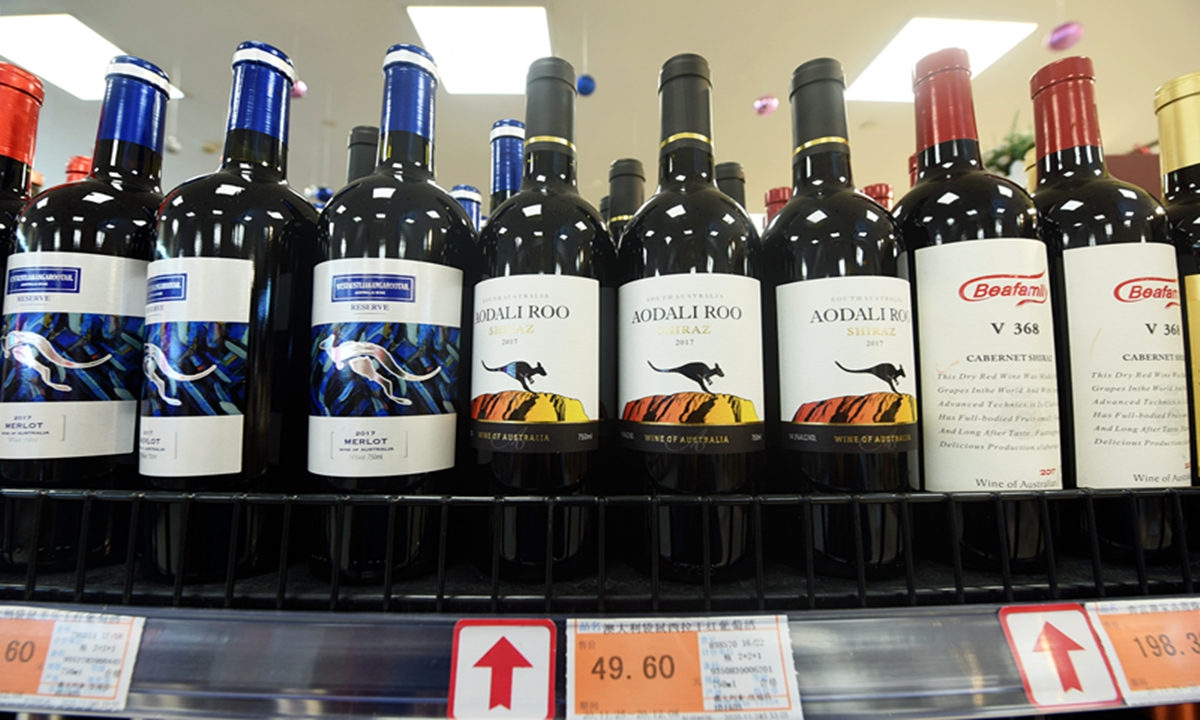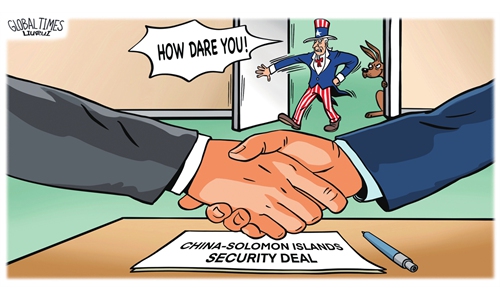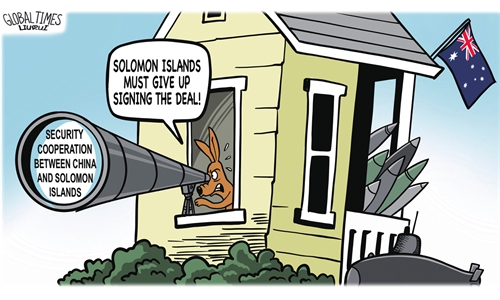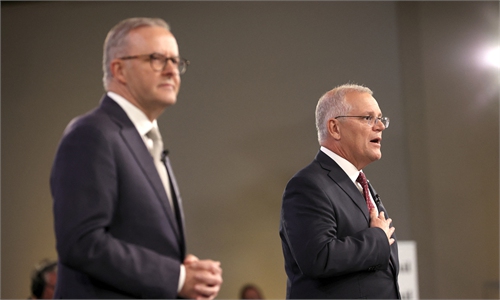
Bottles of Australian wine on the shelf of a supermarket in Hangzhou, East China’s Zhejiang Province on November 27, 2020 Photo: VCG
Australia’s wine exports slumped 26 percent year-on-year to A$2.05 billion ($1.5 billion) in the 12 months to March 31, Bloomberg reported on Wednesday, claiming “China’s tariffs overwhelm Australian winemakers”.
The sharp fall in Australia’s wine exports shows that the country’s wine industry is indeed in a severe predicament. Yet, it is the Australia government’s wrong approach in dealing with its trade ties with China which are the root cause of the problem, rather than China’s legitimate anti-dumping tariffs to protect domestic industry.
The China-Australia wine dispute stems from Australia’s dumping activity. According to a report by China’s wine industry association, Australian wine-makers have extensively expanded exports to China by slashing prices in recent years. The behavior drove the dumping margin to 202.7 percent, and severely impacted China’s domestic wine industry.
Against this backdrop, China’s move to levy anti-dumping tariff on Australia wines was taken after investigations and complies with WTO rules and Chinese laws.
Furthermore, the dispute is exacerbated by Australia’s wrong approach to dealing with trade issues. When Australia appealed to the WTO last June and claimed that it was willing to negotiate with China to resolve the dispute, but in fact it keeps playing a victim while promoting decoupling from China.
For instance, in Australia’s interim bilateral trade deal with India, Australian Trade Minister Dan Tehan last month said that the Quad mechanism, a geopolitical tool the US and its allies have used to counter China, has helped the two parties ink the trade deal. Last year, Australian special trade envoy to India and former Prime Minister Tony Abbott played up the ideological difference, saying the trade deal would signal the “democratic world's tilt away from China.”
When dealing with trade issues with China, its largest trading partner, Australia is always making decisions based on the outdated Cold War mentality. This misguided push for trade and economic decoupling is clearly the root cause of China-Australia trade woes.
While playing the victim will fool no one, promoting economic decoupling will only worsen China-Australian trade ties. If Canberra continues moving further on the wrong direction, it will only lead to the Australian business community paying a higher price.
China-Australia trade is deemed highly complementary, but bilateral trade has faced major challenges because of the Morrison government’s stubborn anti-China posturing.
A report by the Australia-China Relations Institute under the University of Technology Sydney showed that while Australia likes to act as the US’ pawn to counter China, American businesses are picking up Australia’s lost sales in China.
Calls for the Australian government to pursue in-depth communication with China based on mutual understanding are rising among business communities and local officials in Australia, as Canberra's hostile approach to China continues to inflict pain on local businesses.
Innes Willox, chief executive of the Australian Industry Group last May called on the Australian side to ease the tension with China through negotiation, saying businesses want negotiation with China, while not conflict.
The responsibility for the current difficult situation of the bilateral relations lies with Canberra. Facing the upcoming election, it is time for Australian politicians to rethink how best to manage ties with China in a practical manner, so as to create conditions for repairing damaged economic and trade ties.
The author is an editor with the Global Times. bizopinion@globaltimes.com.cn



